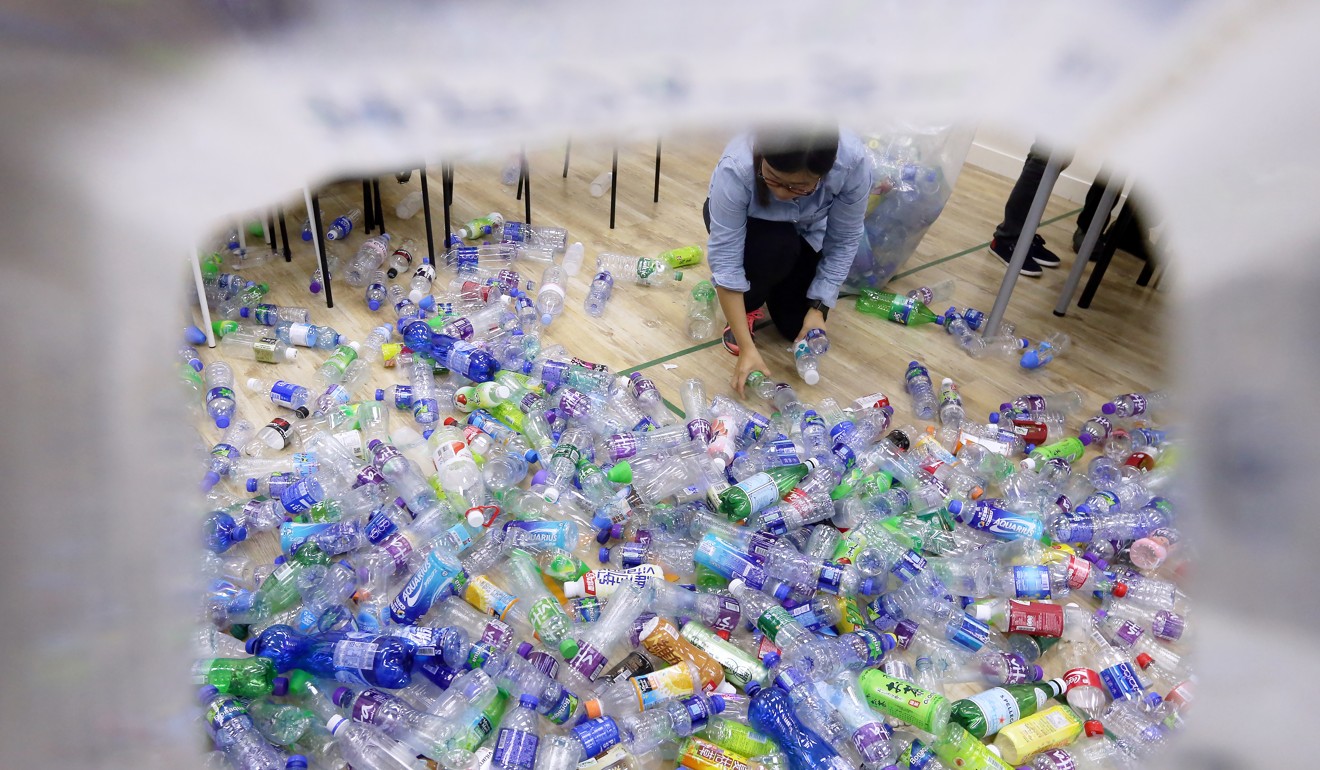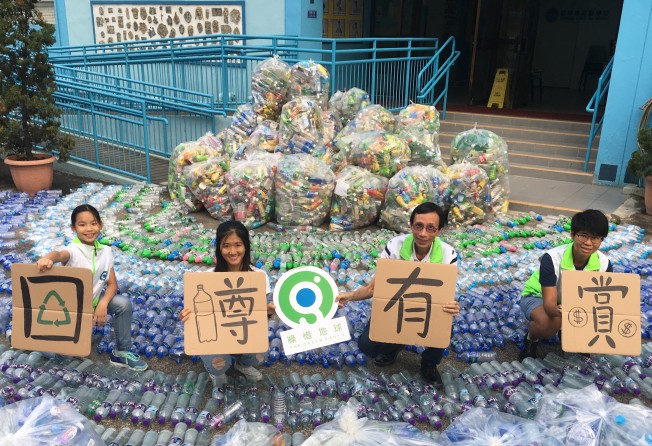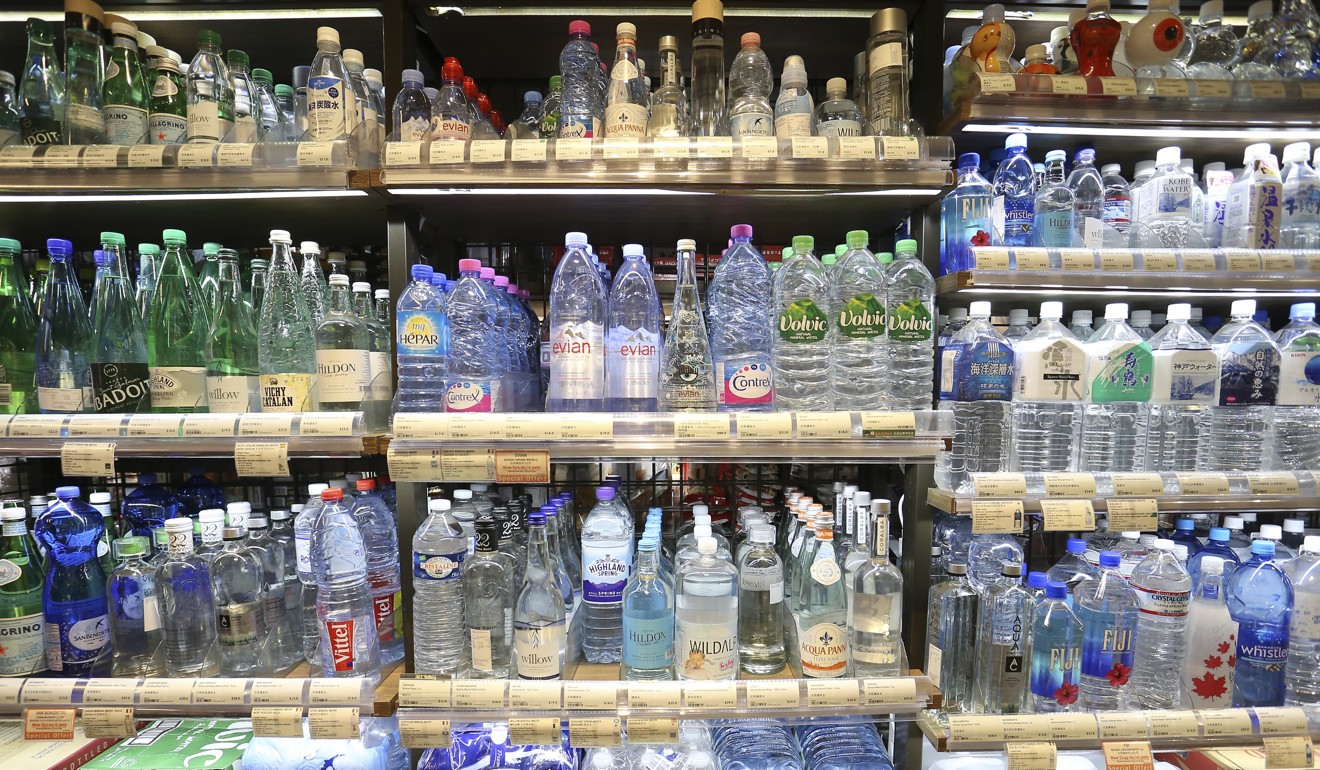
Refund Hongkongers 20 HK cents per plastic bottle and watch city’s dismal recycling rate rise, green group says after trial
- Environmental organisation tries out idea for five weeks and finds enthusiasm runs especially high among low-income residents
- Proposal among plans shared by chief executive in her last policy address to increase recovery rates

Incentives as tiny as a refund of 20 HK cents for every returned plastic bottle could go a long way in helping boost Hong Kong’s dismal recycling rate, an environmental advocacy group has found.
The Green Earth tried out the idea in Kwai Fong for five weeks between September and October to gauge the effectiveness of a bottle deposit refund system, managing to collect nearly 10,000 polyethylene terephthalate (PET) containers.

Participants were offered 20 HK cents for every bottle returned, and low-income residents were found to be especially eager.
One elderly collector managed to bring in 600 in a single week, the group noted.

“It really shows that just a bit of financial incentive will drive the public to search for used PET bottles and bring them for recycling,” Green Earth executive director Edwin Lau Che-feng said.
“It’s not difficult at all for the beverage industry to act now to adopt a means to save PET bottles … from being dumped in landfills or leaking into nature.”
Just a bit of financial incentive will drive the public to search for used PET bottles and bring them for recycling
The most popular areas for sourcing bottles were in or around sports grounds, public rubbish bins, and trash receptacles at industrial buildings as well as in MTR stations, wet markets and pavements.
In addition to considering the bottle deposit scheme, the Environment Bureau is studying a new producer responsibility scheme for plastic bottles and potentially centralising collection by a designated government contractor to boost recovery rates.
Environment minister Wong Kam-sing had conceded that plastic bottle recycling rates in cities with deposit refund systems were exceptionally high – 50 per cent in some places and as high as between 80 and 90 per cent in others.
Project officer Mandy Cheung Wing-man said about 40 per cent of the collected containers were for bottled water and 50 per cent for other drinks.
“The trial results indicate that water-dispensing facilities are still inadequate,” she said. “Through this data, we want to urge the government, mall operators, the MTR and fast-food restaurant chains to provide more water dispensers.”
In her latest policy address, Chief Executive Carrie Lam Cheng Yuet-ngor pledged to press ahead with introducing the producer responsibility scheme for plastic bottles to create a more circular economy.
This would include a pilot scheme using “reverse vending machines” to better assess the effectiveness of collecting plastic drink bottles.
To inculcate a “bring your own bottle” culture and reduce waste, the government was also targeting the installation of another 500 water dispensers and filling stations in three years, Lam said.
In 2016 – the most recent year for which statistics were available – 10,345 tonnes of municipal waste were sent daily to landfills, which was 1.8 per cent more than the year before.
One-fifth of that total comprised plastic, including 154 tonnes of disposable cutlery and 227 tonnes of bottles. The recovery rate for plastics was only 14 per cent, and for PET bottles, just 8.5 per cent.